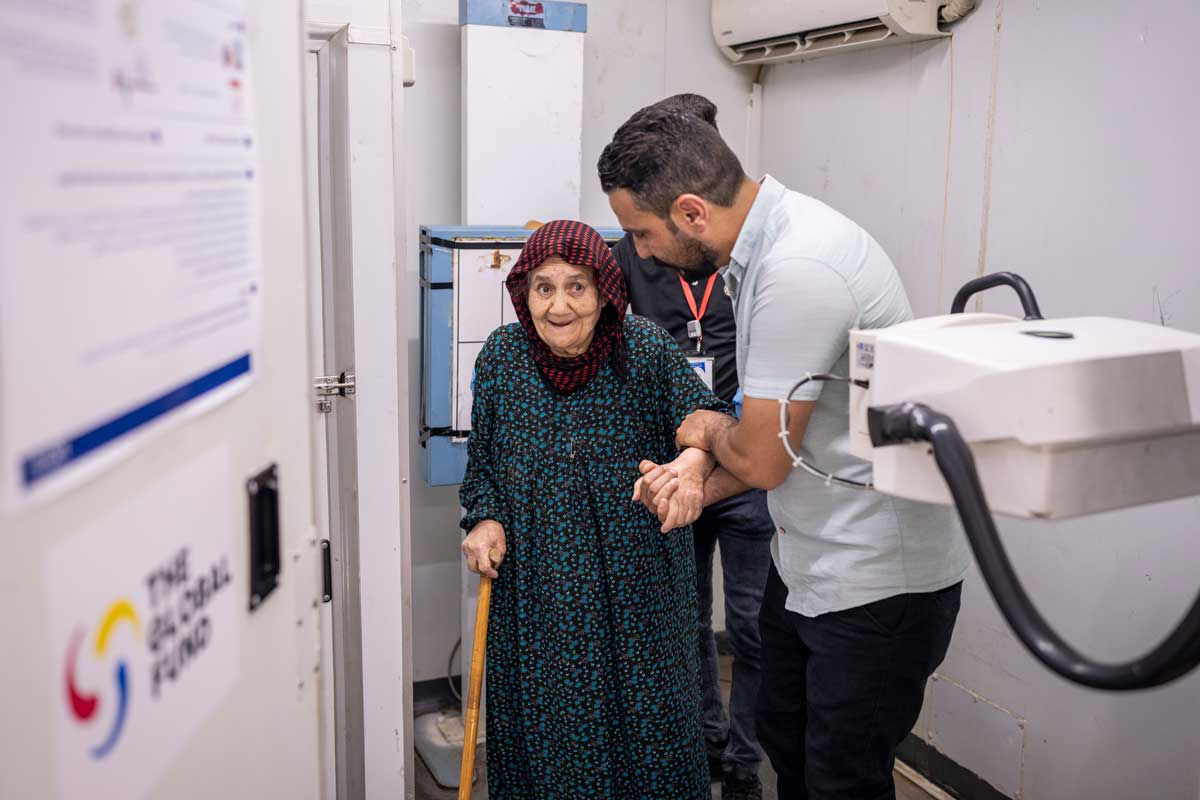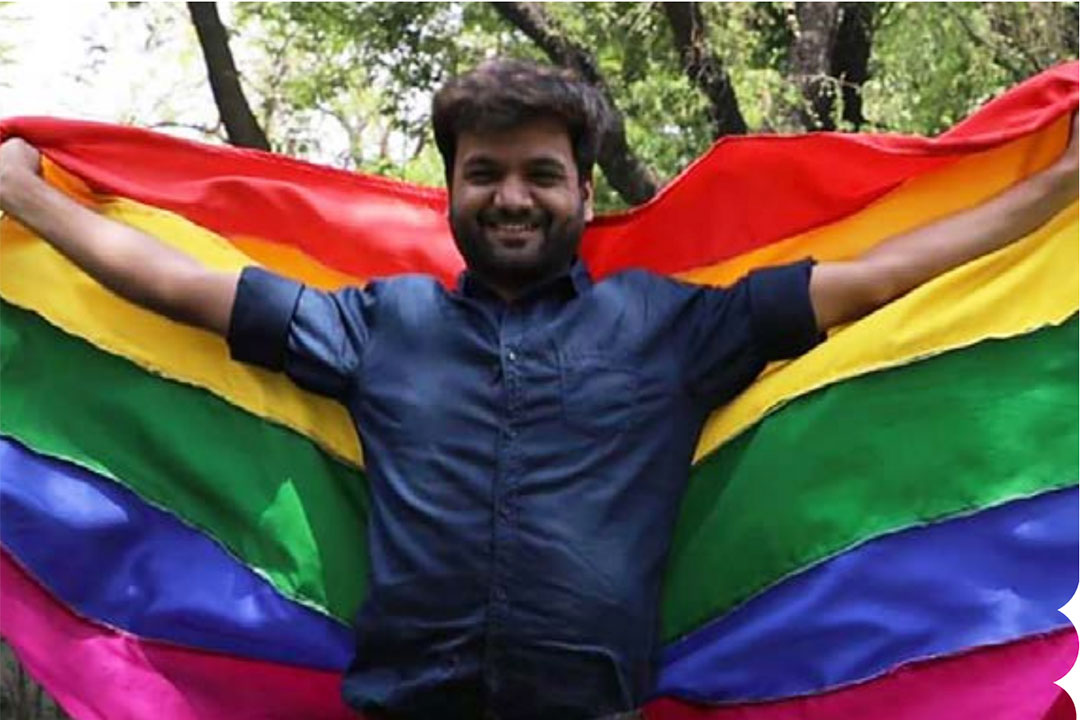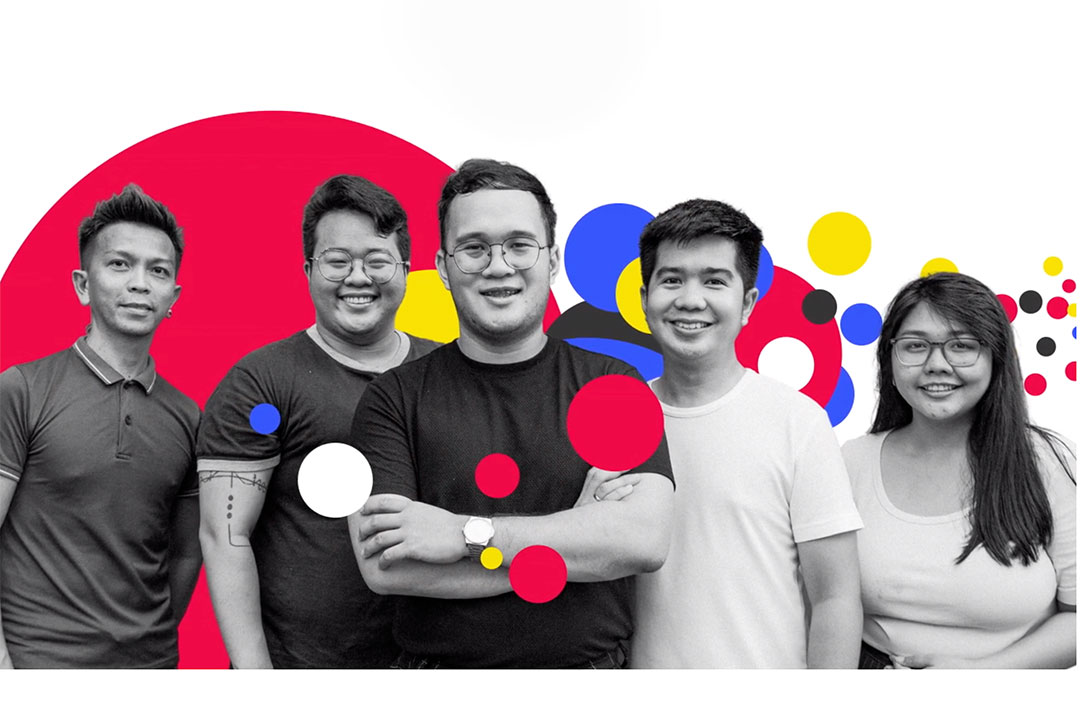Chest camps in Pakistan bring TB services to the people
In 2014, Mercy Corps, an international humanitarian organization and Global Fund partner, launched chest camps: mobile health facilities that bring TB and health care services to people living in some of the most remote parts of Pakistan.
- 21 March 2025
- 4 min read
- by The Global Fund
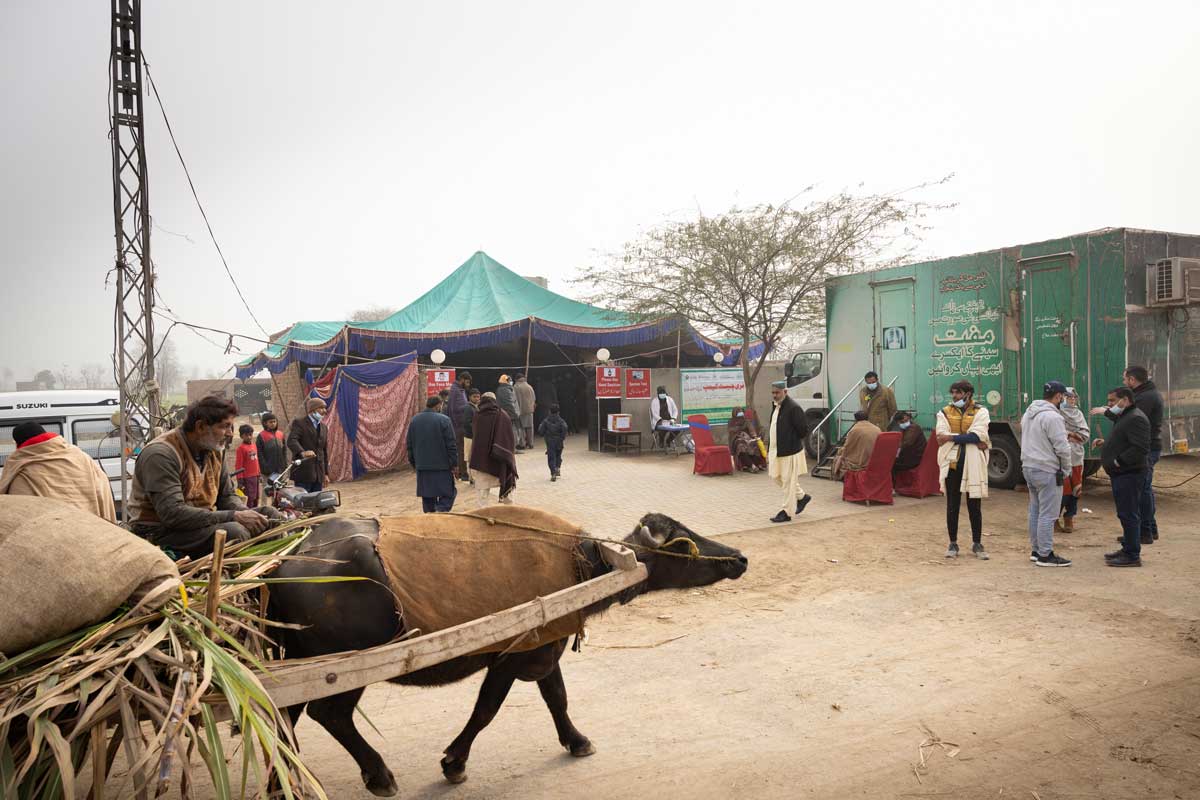
On a cold winter day, Adnan Saeed and his brother Rizwan travel from their home to the nearby village of Chak 168 GB Sirāj, about an hour’s drive from Faisalabad, Pakistan.
The temperature dips down toward 0 degrees Celsius; still, dozens of men, women and children gather around the tent, exchanging news and waiting to register for a tuberculosis (TB) screening and test.
Adnan adds his name to the registry.
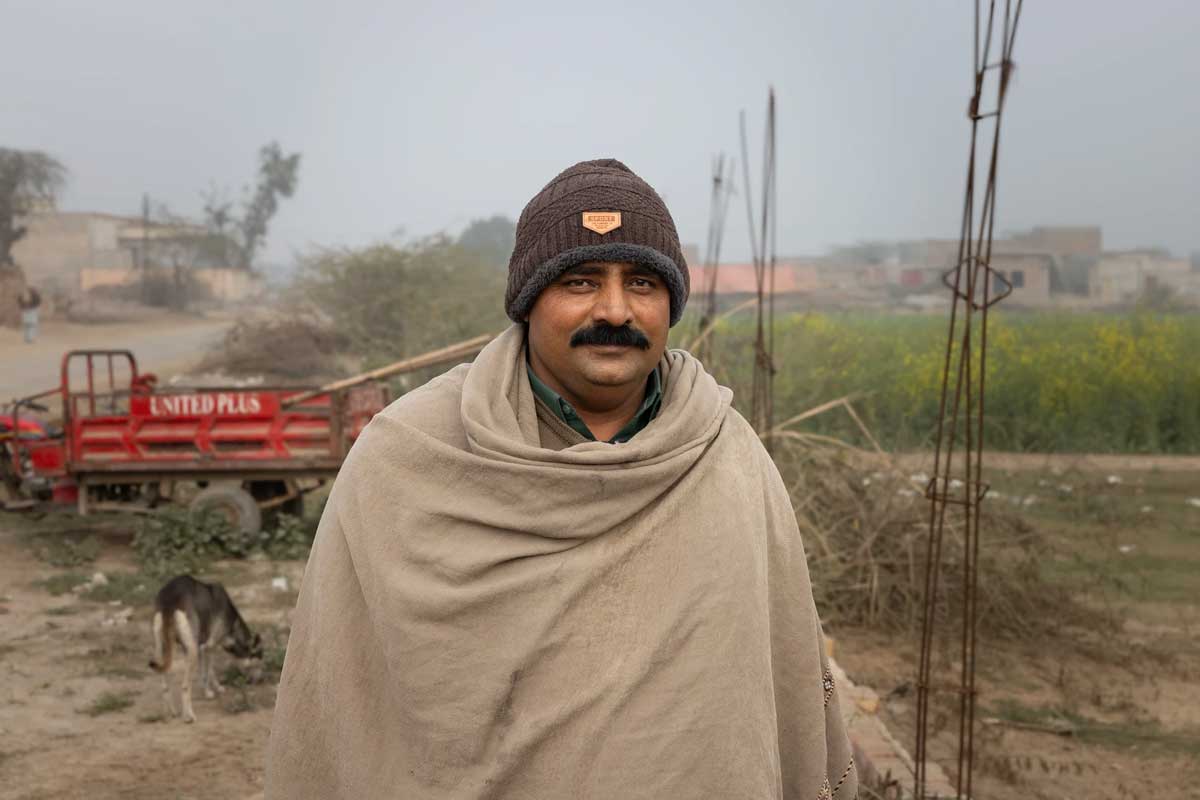
“I’m suffering from shortness of breath after doing little work,” Adnan says. He recognizes the symptoms: months earlier, another brother, Imran, died while receiving treatment for TB.
Adnan and Rizwan are here, along with 50 or 60 others, for a checkup.
Fauzia Ghafoor has attended several “chest camps” in her 17 years as a health worker and supervisor with the government’s district health unit.
“Earlier, people even avoided talking to a TB patient,” she says. “Now, it’s a different story.”
Pakistan has made significant strides in its fight against TB. In 2022 alone, approximately 425,000 people were treated for TB – about 85,000 more than in 2021.
Still, Pakistan ranks fifth among countries with a high burden of the disease, with millions of people living in areas without easy access to TB testing and care. Clinics with the tools to accurately diagnose TB are too far to reach on foot; farmers, laborers and parents with young children can’t afford to spend a day away from their work and families.
At the same time, people with TB symptoms can face stigma and discrimination, which may prevent them from accessing care and risk further spreading the disease.
In 2014, Mercy Corps, an international humanitarian organization and Global Fund partner, launched chest camps: mobile health facilities that bring TB and health care services to people living in some of the most remote parts of Pakistan.
The camps provide a community-focused place where people can safely access health services they would otherwise go without.
“Many of our clients are women with children and elderly people,” says Adeel. “People with more practical obstacles, with nobody to help them take care of their health – so we can have double the impact.”
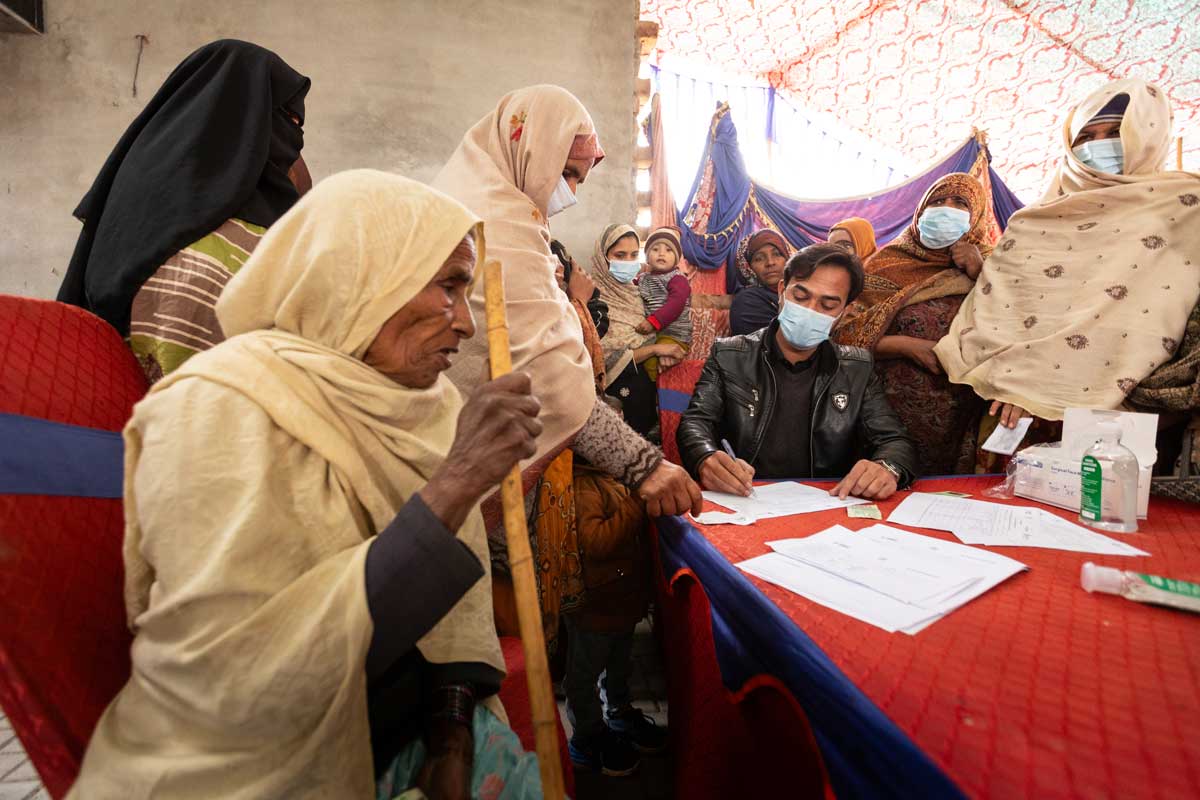
Preparations for the chest camps begin weeks in advance.
Community health workers like Fauzia go house to house in villages like Chak 168 GB Sirāj. Adnan and Rizwan learned about this chest camp at a follow-up visit from a health worker after Imran’s death.
“It is routine when we visit any home, people start telling us their health issues if they are facing any,” Fauzia says. “We counsel anyone who has had a cough to get themselves examined, and don’t delay.”
Mercy Corps also reaches out to local health clinics and district leaders to identify trusted figures in the community – such as teachers and imams – who announce the camps in schoolrooms and mosques.
Their message: The doctor is coming to you – and the care they provide is free.
These coordinated health awareness campaigns are changing the way that TB is perceived.
Chest camps are part of an integrated approach among Pakistan’s public health system, including federal and district health leaders, and private partners, such as Mercy Corps and doctors with private practices.
The public-private mix can help bridge the gap among various health entities working to end TB in Pakistan.
It can also create opportunities for flexibility and innovation.
In 2022, catastrophic floods blocked roads that connected people in remote communities to hospitals and clinics.
Chest camps became health camps: Mercy Corps' 40 vans – equipped with X-ray machines, diagnostic equipment, medicines and teams of health care providers – navigated little-used roads to reach those isolated by floods.
And the technology to screen, test and treat TB is improving.
Digital X-rays and GeneXpert machines can screen and diagnose TB among patients like Adnan on the spot. Artificial intelligence (AI) tools help identify “hotspots” and prioritize locations where chest camps will reach more people who might have TB. AI is also used to read X-rays effectively and efficiently and identify people who should receive additional testing – which often means that TB is caught and treated much earlier.
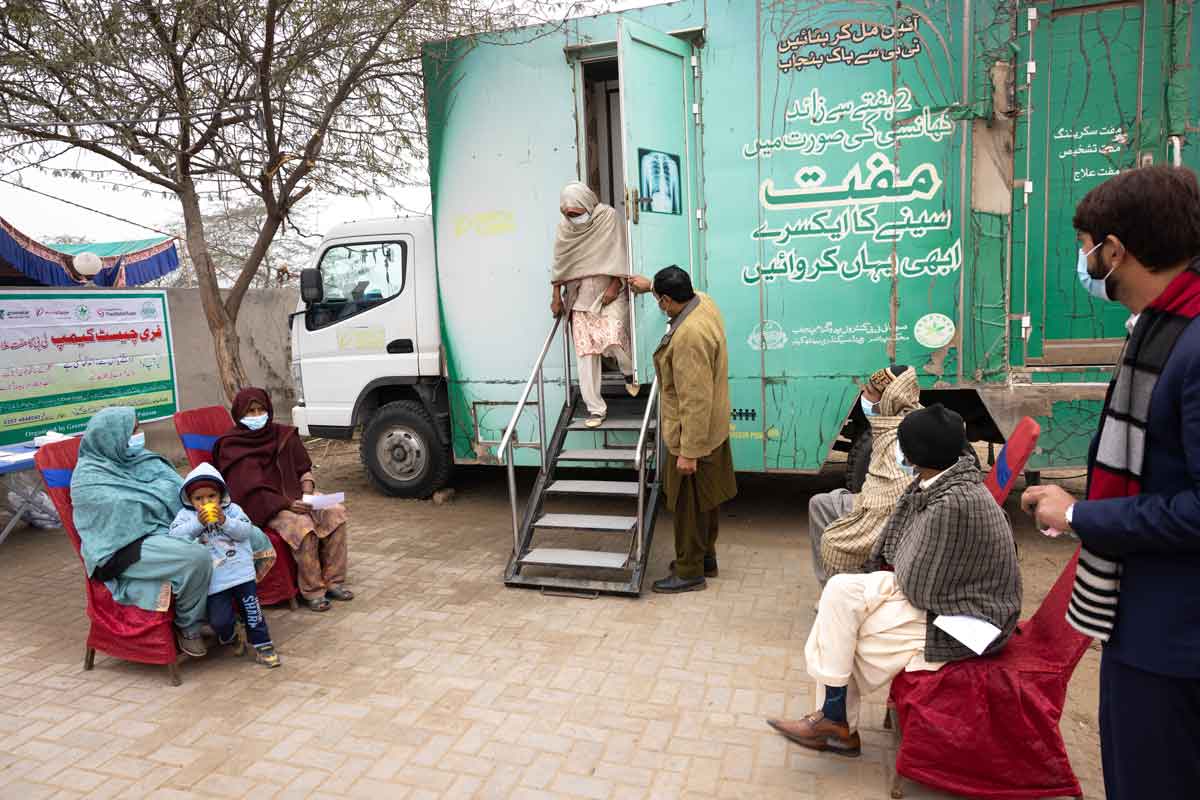
Adeel has attended chest camps for nearly a decade. With the Global Fund’s support, Mercy Corps now holds 600 camps per month across 100 districts and procured 25 portable X-ray machines that can fit on the back of a motorbike. Providers can bring them down narrower roads to reach rural communities.
Have you read?
The Global Fund’s support in Pakistan is also strengthening diagnostic networks, lab facilities, sample transportation and helping to procure and distribute TB medications across the country. Chest camps are one crucial part of a comprehensive approach by multiple partners to fortify Pakistan’s health systems.
Still, Adeel hopes for a future without TB – in which chest camps are no longer needed.
“We are trying to put as many resources toward ending TB as possible,” he says.
